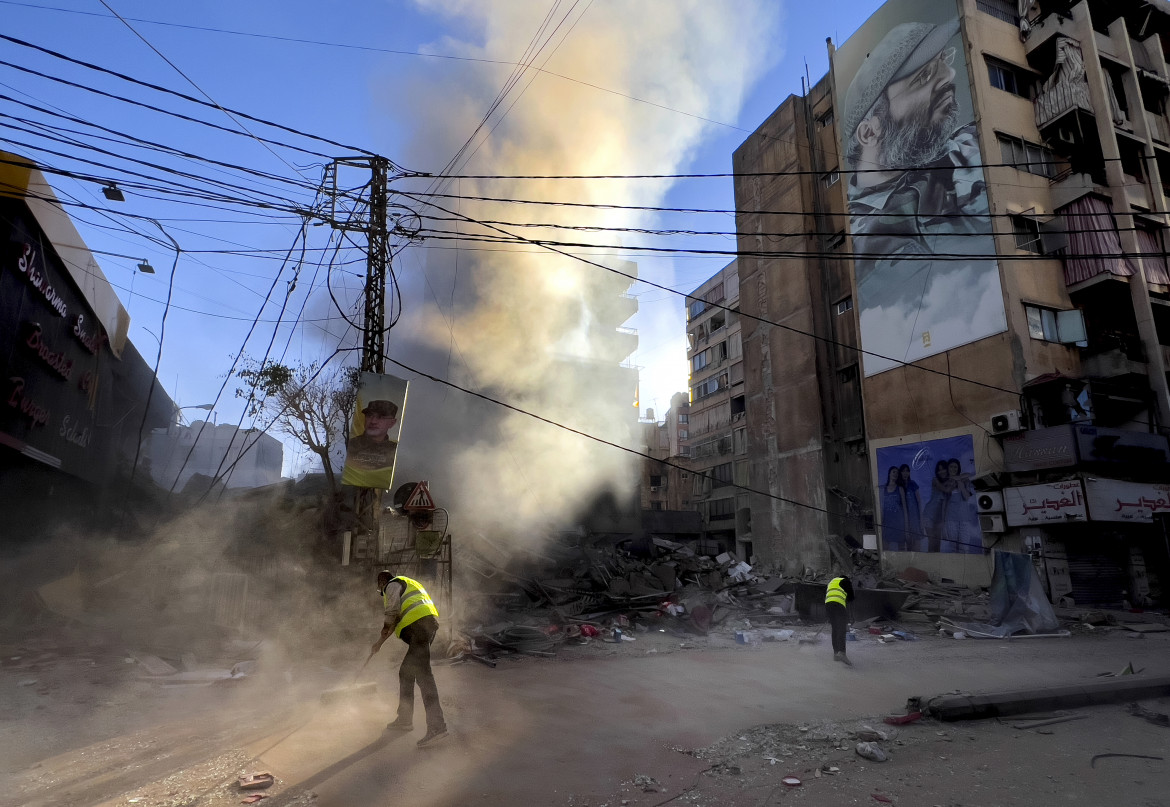Commentary
The dirty truce in Lebanon leaves half the country in the teeth of the IDF
The deal envisions Lebanon effectively split into two areas of protection, as local media wrote on Tuesday: Israeli-American in the south, and Hezbollah-Iran north of the Litani River, with the UN and Lebanese forces in between. Of course, Israel reserves the right to strike whenever it wants.

The ceasefire in Lebanon is a “dirty” one: if it really materializes, it comes together with a rain of bombs on Beirut and, as always, with Israel's right to break it at any time.
The deal envisions Lebanon effectively split into two areas of protection, as local media wrote on Tuesday: Israeli-American in the south, and Hezbollah-Iran north of the Litani River, with the UN and Lebanese forces in between. Of course, Israel reserves the right to strike whenever it wants; and Hezbollah, in turn, gets to decide for all of Lebanon and not just the “resistance.”
Meanwhile, Israel made it known that on Tuesday alone it had hit 180 targets in Lebanon, and the 91st Division of the Israel Defense Forces (IDF) reached the Litani River in southern Lebanon and the Wadi Saluki area. This is the first time that IDF troops reached the Litani River since 2000, when Israel withdrew from southern Lebanon.
So, is Hezbollah the loser? For Hezbollah, the agreement with Israel is a strategic compromise that keeps the fundamentals of its “resistance mission” in place without giving up its ability to operate as a political-military actor in Lebanon. The party describes the agreement as “a tactical pause,” necessary to reorganize forces and face the upcoming challenges, with no notion of abandoning the fight against what it calls “the Zionist enemy.”
In short, they’re doing their best to sugarcoat it. Sources close to Hezbollah in Beirut are saying that although the withdrawal of its fighters north of the Litani River can be seen as a tactical concession, this is actually a “temporary adaptation” to the current context, “necessary to protect civilians” and preserve the integrity of its arsenal.
The truth is that all Shiite areas linked to Hezbollah have been evacuated and partly destroyed. The “Party of God” has lost its secretary general, Hassan Nasrallah, and its military high command and much of its arsenal have been decimated. This result is very different from 2006, when Hezbollah managed to defend itself and Lebanon by blocking Israel's advance into the south.
That was when Hezbollah reached the height of its popularity, not only in Lebanon but also in much of the Middle East, despite the fact that Hezbollah is active among the Shiite minority and is strongly supported by Iran.
Of course, Hezbollah is still there, and a war cannot defeat an idea, or an ideology well entrenched in society.
So is Hamas, despite the 45,000 Palestinians killed in Gaza – 70 percent of them women and children – and the decimation of its leadership. The past has shown that the resistance of a people cannot be wiped out. However, it turned out Hezbollah had been miscalculating for many months, overestimating its strength against its opponent.
That was the logic that led them to the current disaster. Although one can point to a significant mitigating factor: even the military analysts opposed to Hezbollah thought that the Lebanese resistance was still capable of inflicting major damage on Israel. Instead, it was Israel that surprised everyone with the epitome of technological cyber-warfare, a decapitation strike against Hezbollah’s leadership and members.
Its war did not shy away from mercilessly wiping the slate clean all over Lebanon, causing thousands of deaths and billions of dollars in damage to a country already exhausted by economic crisis and the influx of hundreds of thousands of refugees.
But what is the most important reason why this is a “dirty truce”? It’s because Israeli Prime Minister Benyamin Netanyahu wants much more than just defeating the Iranian axis. He wants to bring it to its knees and render it no longer a threat in the coming decades. And, at the same time, he wants to bury the Palestinian issue. In other words: to impose a new reality in the region. This has been his dream for more than 30 years.
Now, the election of Donald Trump might allow him to make that dream come true.
Originally published at https://ilmanifesto.it/la-tregua-sporca-sulla-pelle-di-due-popoli on 2024-11-27
